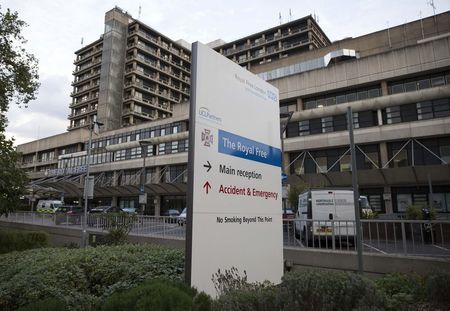LONDON (Reuters) - A British man who contracted Ebola in West Africa has been discharged after successful treatment with the experimental ZMapp drug, the Royal Free Hospital in London said on Wednesday.
William Pooley, 29, was treated in a special isolation unit after contracting the deadly disease in August when working as a volunteer nurse in Sierra Leone.
"Following 10 days of successful treatment in the high level isolation unit – the only one in the UK – Mr Pooley is being discharged from the Royal Free Hospital today," the hospital said in a statement on its website.
"He was flown to the hospital on Sunday 24 August 2014 and was treated with the experimental drug ZMapp," it added.
Pooley later told reporters at a news conference he thought he had been fortunate.
"I was very lucky in several ways," he said. "Firstly in the standard of care that I received, which is a world apart from what people are receiving in West Africa at the moment despite lot of organisations' best efforts.
"The other difference to a lot of Ebola cases (is) that my symptoms never progressed to the worst stages of the disease. I had some unpleasant symptoms but nothing compared to some of the worst of the disease."
Governments and aid organizations have scrambled to contain the disease, which according to the World Health Organization (WHO) has killed more than 1,500 in West Africa since March.
ZMapp is one of several treatments for Ebola under development. The drug, although never tested in humans, gained attention this summer when two American aid workers who contracted Ebola in Liberia were cured after receiving it.
ZMapp, which uses antibodies from tobacco plants, is made by the privately held Mapp Biopharmaceutical Inc, based in San Diego, California.
The U.S. Department of Health and Human Services has said a federal contract worth up to $42.3 million would help accelerate testing of the treatment.
It said Mapp would manufacture a small amount of ZMapp for early stage safety studies and animal studies needed to prove its effectiveness and safety in people.

Human safety trials are due to begin this week on a vaccine from GlaxoSmithKline Plc and later this year on one from NewLink Genetics Corp.
(Reporting by Stephen Addison; editing by Sarah Young)
